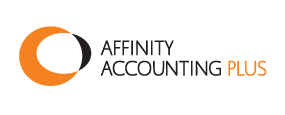Tax saving strategies prior to 1 July 2014
A good strategy to reduce tax payable is normally to accelerate any income tax deductions into the current income year, which will reduce overall taxable income in the current year.
The tax rates for resident individual taxpayers for the 2013/14 income year are as follows:
| Income threshold
0 – $18,000 $18,201 – $37,000 $37,001 – $80,000 $80,001 – $180,000 $180,001 and over
|
Tax payable Nil 19% of excess over $18,200 $3,572 + 32.5% of excess over $37,000 $17,547 + 37% of excess over $80,000 $54,547 + 45% of excess over $180,000 |
|
Note: The Medicare Levy of 1.5% (to increase to 2% from 1 July 2014) generally applies in addition to these rates. It is also important to note that as part of the 2014/15 Federal Budget, the Federal Government announced that it proposes to introduce a ‘Temporary Budget Repair Levy’ effective from 1 July 2014. Under the proposed measure, a 3-year temporary levy of 2% will be imposed on that part of a person’s taxable income which exceeds $180,000 (i.e., a temporary increase in the top marginal tax rate from 45% to 47%). |
|
Common work-related claims made by individuals
The following outlines common types of deductible expenses claimed by individual taxpayers, such as employees and rental property owners, plus some strategies that can be adopted to increase deductions from the 2013/14 income year.
1. Depreciable plant, etc, costing $300 or less
Salary and wage earners and rental property owners will generally be entitled to an immediate deduction if certain income-producing assets costing $300 or less are purchased before 1 July 2014.
Some purchases you may consider include:
- Books and trade journals;
- Briefcases/luggage or suitcases;
- Calculators, electronic organisers;
- Electronic Tablets;
- Software;
- Stationery; and
- Tools of trade.
2. Clothing expenses
Purchase or pay for work-related clothing expenses prior to the end of the income year, such as:
- Compulsory (or non-compulsory and registered) uniforms, and occupation specific and protective clothing;
- Other expenses associated with such work-related clothing, such as dry cleaning, laundry and repair expenses.
3. Self education expenses
Consider pre-paying the following self education items before the end of the income year:
- Course fees (but not HECS-HELP fees), Student Union Fees and Tutorial Fees;
- Interest on borrowings used to pay for any deductible self education expenses.
Also bring forward purchases of stationery and text books (i.e., those which are not required to be depreciated).
4. Other work-related expenses
Employees can prepay any of the following expenses prior to 1 July 2014:
- Union fees;
- Subscriptions to trade, professional or business associations;
- Magazine and newspaper subscriptions;
- Seminars and conferences;
- Income protection insurance (excluding death and total/permanent disability).
Note: When prepaying any of the expenses above before 1 July 2014, ensure that any services being paid for are to be provided within a 12 month period that ends before 1 July 2015. Otherwise, the deductions must be generally claimed over the period of the prepayment.
Information Required
We will need you to bring information to assist us in preparing your income tax return.
Please check the following and bring along payment summaries, statements, accounts, receipts, etc., to help us prepare the return.
Income/Receipts
- Payment summaries for salary and wages;
- Lump sum and termination payments;
- Government pensions and/or annuities;
- Allowances (e.g., entertainment, car, tools);
- Interest, rent and dividends;
- Distributions from partnerships or trusts;
- Details of any assets sold that were either used for income earning purposes or which may be caught by capital gains tax (CGT).
Deductions (in addition to those mentioned above):
- Award transport allowance claims;
- Bank and government charges on deposits of income, and deductible expenditure;
- Bridge/road tolls (travelling on business);
- Car parking (when travelling on business);
- Conventions, conferences and seminars;
- Depreciation of library, tools, business equipment (incl. Portion of home computer);
- Gifts or donations;
- Home office running expenses:
- Cleaning
- Cooling and heating
- Depreciation of office furniture
- Lighting
- Telephone and internet
- Interest and dividend deductions:
- Account keeping fees
- Ongoing management fees
- Interest on borrowings to acquire shares
- Advice relating to changing investments (but not setting them up);
- Interest on loans to purchase equipment or income-earning investments;
- Motor vehicle expenses (business/work related);
- Overtime meal allowances;
- Rental property expenses – including:
- Advertising expenses
- Council/water rates
- Insurance
- Interest
- Land tax
- Legal expenses/management fees
- Genuine repairs and maintenance
- Telephone expenses
- Travelling to inspect the property
- Superannuation contributions by sole traders or substantially unsupported taxpayers;
- Sun protection items;
- Tax agent fees;
- Telephone expenses (business); and
- Tools of Trade.

